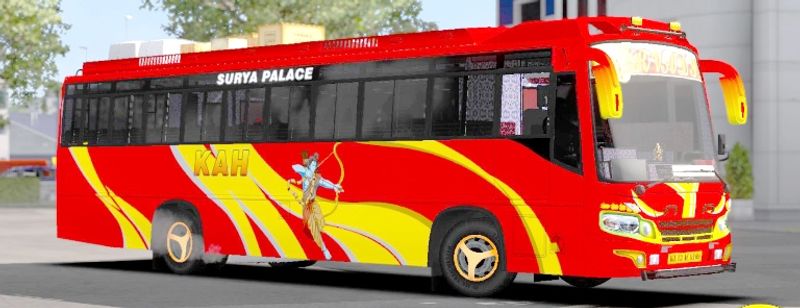

Maruti bus
Uganda’s capital city Kampala has experienced a number of mass transport projects but with very limited success. However, the proposed Tondeka Bus Project feels different. The sense of optimism stems from the level of organisation, leadership and elaborate planning that has been put into it, helping to ensure that it is as inclusive of different stakeholders as much as possible.
The basics
Peter Kimbowa, an acclaimed management consultant, and a member of the Board of Directors of Equity Bank Uganda, is leading a team of Ugandans who hatched the dream of transforming public transport with in Kampala and surrounding rapidly urbanising areas of Wakiso and Mukono into a safe, reliable and efficient service.
Kimbowa’s team has mobilised and received critical support from key players in the public transport sector in the city. These include the three main factions of taxi drivers and owners. In fact their involvement at the highest level as bona fide shareholders of Tondeka, is proving a major victory for the planners by eliminating opposition from groups that would have opposed it.
Fred Ssennonga, perhaps one of the most experienced heads in public transport in Kampala and now one of the planners behind Tondeka, commented that co-opting the guys in the taxi industry has softened the ground for the propagation of the project especially among those that eke a living from the business.
Another anonymous government source with knowledge about the project also observed that previous such projects were viciously opposed by taxi drivers because they presented a real threat to their survival. “This time, all those guys in KOTISA, UTRADA that fight bus projects, are part and parcel of the project and are very anxious to see it start sooner rather than later.”
The rationale
As many city dwellers have perhaps painfully learnt, a chaotic public transport that is experienced in Kampala, not only wastes money through long traffic jams, it undermines productivity of individuals and businesses and ultimately cripples the economy.
Considering that the bulk of Uganda’s wealth is generated around Kampala, the absence of an efficient and reliable public transport necessarily means that the whole economy suffers from the slow-down effects of the public transport system in the city. This is not to mention the loss of time, money, as well as rampant accidents and damage to the city’s reputation as a tourist destination.
Working with a few other notable Ugandans, Kimbowa and team have put together Tondeka that has not only received a node of approval from the President, but is also causing muted excitement among taxi drivers and taxi owners.
Maurice Mukiibi, the Spokesperson of Tondeka bus project, says the team is motivated by the desire to create a reliable and affordable public transport service that through efficient operations, would be patronised by everyone, including the rich.
The buses
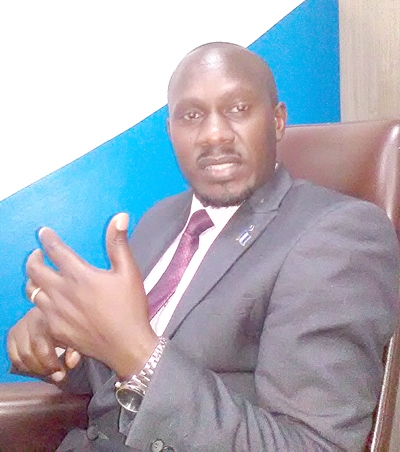
Tondeka PRO Maurice Mukiibi
Mukiibi reveals that Tondeka plans to start with some 980 brand new buses supplied by Ashok Leyland of India, to connect Kampala to all major towns in Wakiso and Mukono that are located within a radius of 35kms.
“Our plan is not only to provide transport services within Kampala, but also connect with surrounding towns such as Mukono, Wakiso, Entebbe that are within a radius of 35kms,” says Mukiibi.
For example, he points out, the buses will reach as far as Entebbe town in Wakiso, Mukono town along Jinja road, Buloba along Mityana road, Nsangi along Masaka road, Matugga along Bombo road and Wakiso town along Hoima road.
The reliability and quality of the buses has been guaranteed by Ashok, one of the leading makers of urban mass transport vehicles in the world.
Ssennoga’s rich experience with similar outfits ranging from Freeline, to Wakilaennume and Pioneer, is being tapped by Tondeka to avoid repeating the mistakes that failed those projects.
He notes that one of the key guarantees they have secured from Ashok is the reliability of the buses by ensuring that the supplier maintains at least 95% of the buses on the road.
“The supplier has assured us that they will establish a garage that will service the buses and ensure that at least 95% of the buses are in service. This is a marked difference with other players in the industry which have left majority of the buses down or moving in dangerous mechanical condition (DMCs),” Ssennoga noted.
A high-tech project
Although many aspects of life in Uganda have largely been touched by technology, such as banking and communication, the transport sector remains largely backward and out of step with developments in other parts of the world.
Tondeka wants to change this by integrating a host of technologies ranging from GPRS systems, security cameras, mobile apps and an electronic payment system that will bring about comfort, transparency, security and predictability; aspects that are needed by all stakeholders ranging from passengers, the government and owners of the buses.
The use of technology to eliminate cash and enhance security through cameras has, according to a reliable source, won the support of President Museveni who wrote to the Ministry of Finance to work with the Uganda Development Corporation (UDC) to fund the project.
Affordability
In an exclusive interview with The Sunrise, Mukiibi revealed that through a cashless payment system, Tondeka would ensure affordability and reliability for passengers.
“The idea is to sell monthly, weekly, daily and one route tickets. A monthly ticket would go for UGX55,000, while a weekly ticket would cost you just UGX19,000 and a daily ticket would cost UGX3,500,” says Mukiibi before adding that the ticket would give someone unlimited access to the transport system in all directions.
The proposed fares and pricing arrangement that is proposed by Tondeka, gives a passenger unlimited frequency per day (number of times one is allowed to use the bus) according to Ssennogga, will be a game changer.
“You know many of us are price sensitive. By saying that someone would spend just 55,000 for an entire month, and move unbothered across the city and the surroundings, is a real game changer,” says Ssennoga.
On top of this, Ssennoga points out, a system that ensures that a bus stops only at a given stage and does not have to wait to fill, besides ensuring that every passenger gets a seat, shall endear many people to Tondeka and marks a significant break from its main competitor Pioneer or even the taxis.
Funding
Our source notes that whereas the Tondeka team had sought for a government guarantee to obtain money from commercial lenders, President Museveni was persuaded by the plan that he asked the Finance Ministry to get UDC to directly invest into the project for a limited period as the shareholders recover the money and pay back to regain their shareholding.
“The security cameras both within the buses outside the buses at the stages and terminals, would be connected to the national security camera network. The president is convinced that this will reduce the cost of expanding the camera network,”
The Ministry of Finance has since started to engage UDC to ensure they mobilise US$150m that is needed to buy the initial 800 buses and perhaps work on establishing the network.
To ensure that the public resources are invested wisely, the government through UDC has hired a consultant to carry out a feasibility study for the project.
“This feasibility study will try to answer all the unanswered questions such as establishing the cost of benefit of the buses on employment, the question of whether or not the buses will need a dedicated lane, the possible impact on living standards through reducing transport costs to individuals many of whom resort to personal cars, reducing pollution etc,” said the government source.
The consultant is expected to complete the study by June a decision on whether or not the government should invest, can be made.
The president’s initial support for Tondeka has however come with a caveat, according to our source.
“The President has insisted that Tondeka would be allowed to ship in the first consignment of assembled buses. He has put a condition that subsequent buses be assembled in Uganda and preferably at the Jinja-based Kiira Motors Corporation that is building Kayoola solar buses.”
As you read this, Tondeka team is currently conducting an aggressive public relations exercise to change the mindset of many skeptics that the project is workable and that they would deliver on their word.
One of those still opposed to it is the Kampala Lord Mayor Erias Lukwago, who, in his recent remarks in Parliament, expressed the view that he his leadership has been sidelined.
But Mayor Lukwago’s claim that KCCA had an alternative plan of transforming public transport, has been dismissed as a mere excuse to exercise egos.
Mukiibi notes for example that the claim by the Lord Mayor that KCCA wants to introduce cable transport, is a distant dream that should not be banked on by Kampalans.
Despite this, Kimbowa’s team is understood to be trying to reach out to as many people as possible to remove any obstacles.
For now though, the clearest sense of a breakthrough is yet to come after UDC completes the feasibility study and gives it a clean bill of health.
In the end however, the history of poor implementation in Uganda means that there is usually a big difference between projects on paper and the reality.

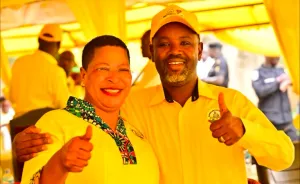
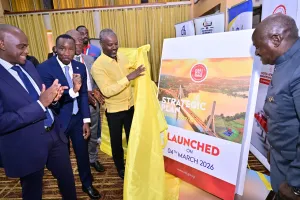
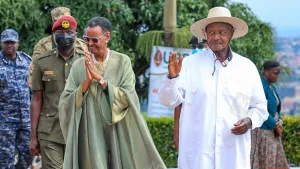
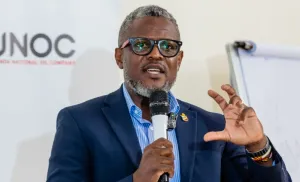
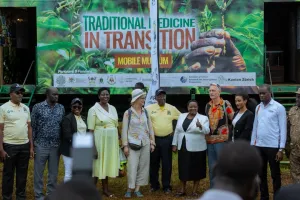







Sunrise Reporter
Leave a Comment
Your email address will not be published.